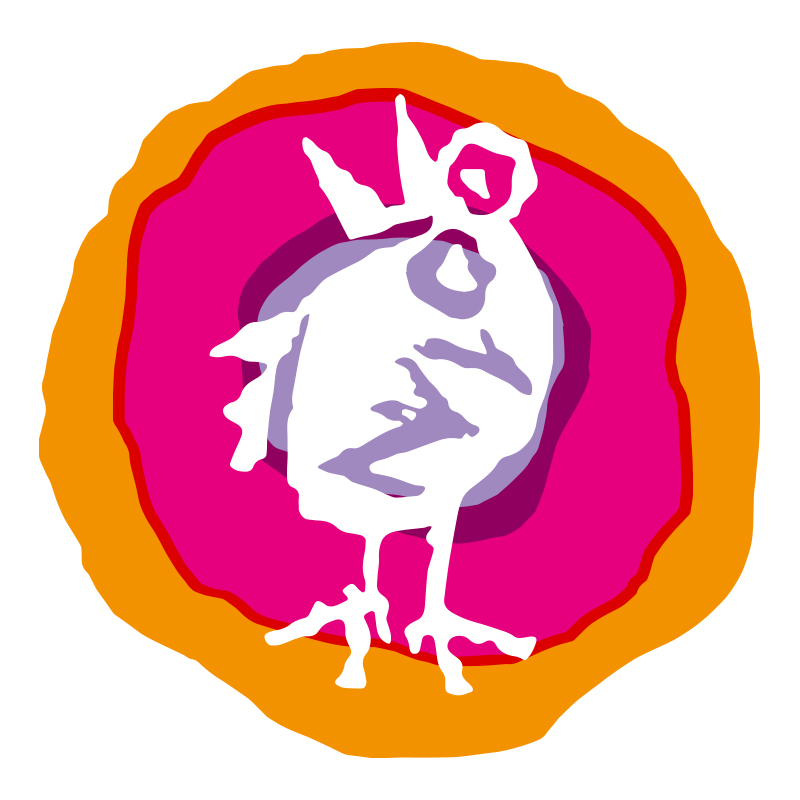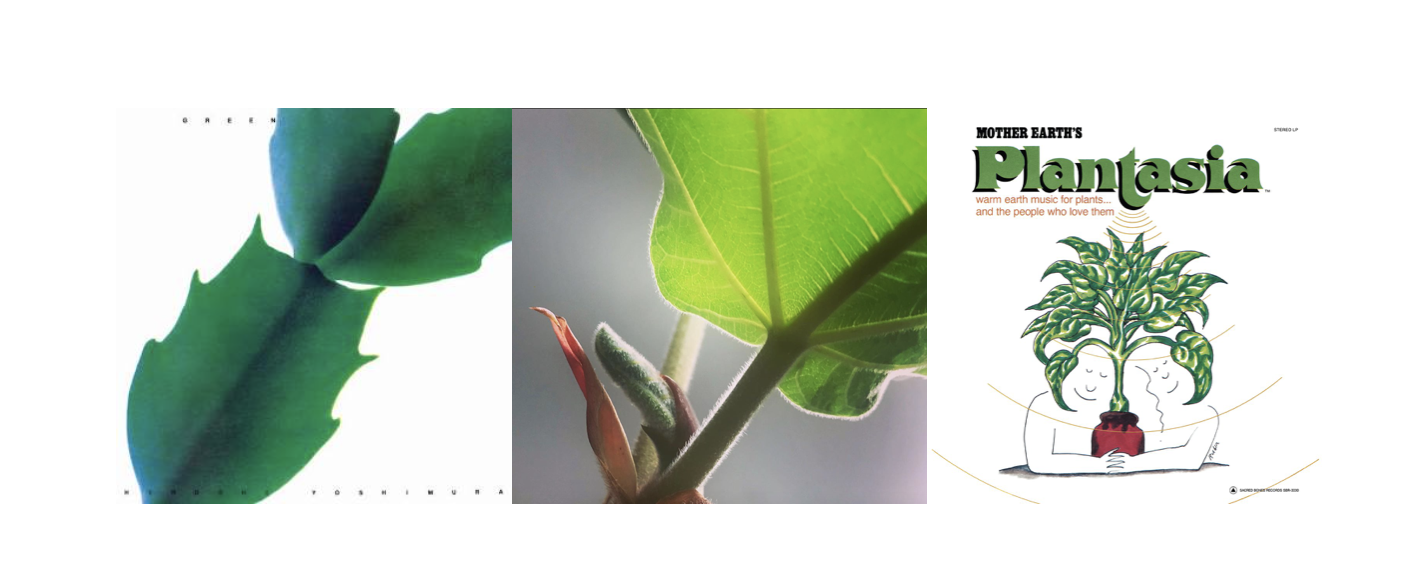In poetic thought the role of the subconscious is played by euphony.
– Joseph Brodsky
The cover of Hiroshi Yoshimura’s essential 1986 album Green, reissued earlier this year on Light in the Attic (the original appeared on Kazuo Uehara’s AIR Records), shows the elegantly branching segmented stem of a schlumbergera, of the genus usually known as a Christmas cactus. The record currently sits on top of a pile next to an example of the plant itself, which I grew from a cutting taken from an old, twisty cactus from my childhood home. This iteration of the plant has travelled with me, enduring hours in rattling moving vans, damp studenty-corners, rooms with poor light and poor air. It’s still pretty vigorous, though, with an upright habit and thick, fleshy stem-segments in beetle green, wine-coloured at the tips of new growth.
I’ve spent a lot of time with it, of late, under our new and restricted conditions. It sits opposite me as I work at my desk, throwing a spiky, alien shadow onto the wall behind it as the sun moves across the room in my east-facing flat. Next to it, a pot of English ivy spirals up the wooden struts of a small shelving unit; a pair of leggy monstera put their aerial roots out into the room like tentacles; in front, my finicky Everest ficus, Felipe, stands taller than me, his velvety leaves bigger than my head. I’ve never felt more like a plant myself, this year. In lockdown, without my usual roaming, I’ve put out a leaf or two, perhaps, rooted myself more firmly, sitting here day after day.
I imagine myself captured in the window, sitting long hours at my desk, occasionally crossing the frame, drawing the same line from bookshelf to kitchen to bathroom.
I’ve got into routines. Coffee, music on, water the plants, work. I’ve needed instrumental music, something for my ears to chew on without the intrusion of lyrics as I edit – I can’t work in silence. I’ve relied on Eno’s Music for Airports, Sunn O))), Carter Thomas, Satie’s furniture music, and lately Green, which, like Yoshimura’s more well-known Music for Nine Postcards, is perfect – contemplative, delicate, a foil to the roar of the A10 down below.
For a while I tried listening to albums that, though not instrumental, contained lyrics written in languages I don’t speak – it doesn’t work. The cadence of human speech, its intentionality, its freight of meaning, its syntax, stretches out aerial roots, seeds conversation in my brain, interrupting whatever it is I’m editing. Yoshimura chose the title – and the individual track titles: ‘Creek’, ‘Feel’, ‘Sheep’, ‘Sleep’, ‘Green’, ‘Feet’, Street’, ‘Teevee’ – for that assonant ee, as a sound, a gesture, a particle, rather than for their literal meaning, the insistence on the phoneme a pleasing rejection of interpretation. That’s what I’m after.
I break and rebreak the lines of someone else’s poem, listening for those almost-indiscernible notes that strike, like quiet bells, to signify rightness.

I drink my coffee; the cactus grows imperceptibly, one red claw luminous in the late-morning light.
*
The Brodsky quote at the top of this article is my favourite line about poetry: In poetic thought the role of the subconscious is played by euphony. I’m fascinated by the effect of patterned sound, by rhyme and half-rhyme, chime and assonance, alliteration, refrain, sibilance, and the secret desire-lines they can draw through the middle of the poem – a pathway, a route, a root through soil.
I listen to four-hour YouTube videos of thunderstorms, the crack and sizzle of lightning and rain incompatible with the summer daylight, but I need its apparent randomness, the organic firing and swirling of it, the line of lightning finding a pathway through the sky down to the ground.
Yoshimura was interested, as I am, in views through windows, in architectural spaces framed and reframed by the window and the eye. His music is encouraging – by which I don’t mean ‘heartening’ or ‘cheering’, necessarily, but more like an attempt to open up a space – a window, a
room, a field – in which the listener can think. I haven’t written much that’s new in months.
I break lines, moving the words towards the frame of the page, and then away from them again, creating white space. The plants respond to the light in timelapse, the weather changes, I put on Mort Garson’s stonerish, Moog-heavy Plantasia, an old favourite, and inspect a new velvety leaf on the ficus, tiny, curled and potential, as if it’s waiting for encouragement. Has it been there weeks, years, on pause?
I might move again soon, pack up the plants and the record player and leave this flat and its window for somewhere else. It all depends on the next couple of months, on the upward sweep of a graph, on whether our public spaces stay open or closed. Has this brief respite, this freer summer, been only a window, and will it shut? I haven’t been to Madrid, where I usually spend a good quarter of the year, prevented again and again by flight cancellations, the threat of quarantine, the line rising on the graph.
Stuck on a linebreak, I break for coffee again, like a broken record. On my brother’s recommendation, I plunge into the back catalogue of Constellation Tatsu, continue the wordless soundtrack to my work with words. Outside, in the world through my window, the summer grows, and greens, and falls back again. The days are shorter, already, the plants in my living room reaching for a changed light at a changed time of day, the sun’s line of travel changing, showing through the leaves green, green, ee, ee.
Martha Sprackland
Playlist for the growing of plants and the drawing of lines:
Hiroshi Yoshimura – Feel
Rhucle – Fantastic Garden
Ana & Ina – Come In
Brian Eno – Music for Airports 1/2
Samantha Glass – Movement 3
Chris Otchy – Minimum Feed
Eliane Radique – Kailasha
Christopher Cerrone – Hoyt-Schermerhorn
Joanna Brouk – The Space Between
Sofie Birch – Myg
Mort Garson – Ode to an African Violet
Grapefruit – Exit Portal
Soda Lite – Habitat
Hiroshi Yoshimura – Green
Sarah Davachi – Praha
Chihei Hatakeyama – quiet forest
Hakobune – I
Bing & Ruth – Reflector
Stars of the Lid – Piano Aquieu
Hiroshi Yoshimura – View from my Window
Ten hours of thunder and rain

